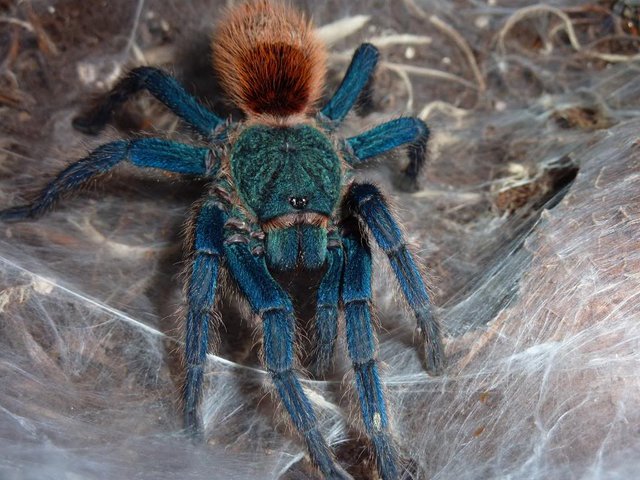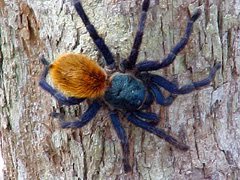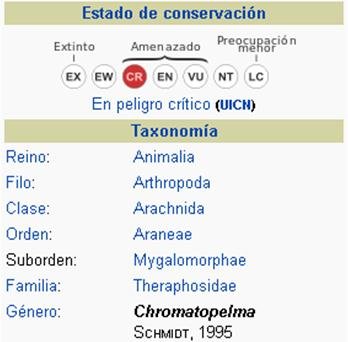Tarántula azul de Paraguaná / Greenbottle Blue Tarantula
Especie endémica de la Península de Paraguaná, en el estado Falcón, Venezuela. Habita áreas con vegetación arbustiva y herbácea, donde busca grietas y agujeros para establecer madrigueras que cubre con seda. Su distribución es fragmentada e inferior a los 2500 km2 que corresponden a la extensión total de la península. Es un depredador activo que se desplaza por el suelo y su dieta está compuesta principalmente por insectos.

Araña migalomorfa (tarántula) de mediano porte que puede alcanzar los 13-15 cm de tamaño total. Posee un patrón de coloración muy característico: cefalotórax generalmente verde-azul metálico, apéndices azul metálico y abdomen variable, entre anaranjado brillante y marrón claro.
It has a very characteristic coloration pattern: generally green-blue metallic cephalothorax, metallic blue appendages and variable abdomen, between bright orange and light brown.

En 2013 científicos venezolanos anunciaron que la especie estaba amenazada por el sobrepastoreo que está acabando con su hábitat, también las fumigaciones de terrenos de cultivo a logrado la migración de la especie hacia la reserva biológica de montecano y el monumento natural Cerro Santa Ana.

I hope you like the article, click on I like it and comment!!